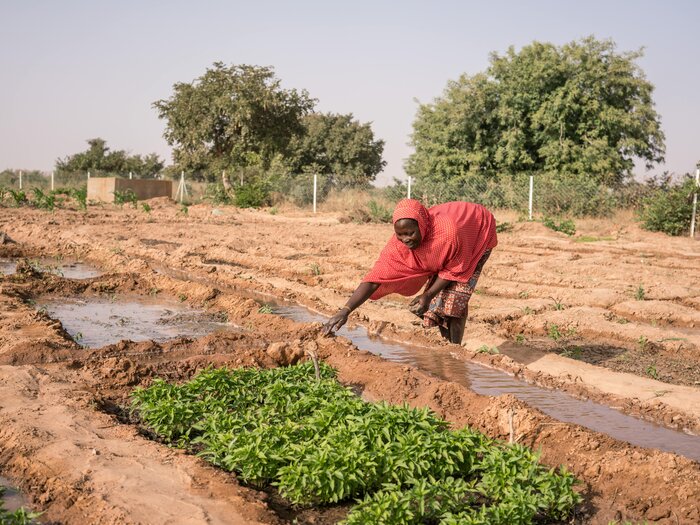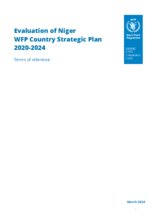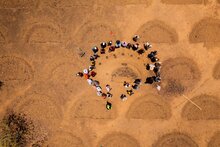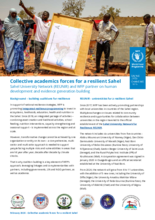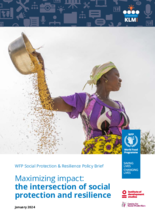Niger
- 42%
- of people live below the national poverty line
- 47%
- of children under 5 are chronically malnourished
- 25.9 million
- population
Niger is a land-locked country in the Sahel region, with around 80 percent of the population living in rural areas. However, land degradation and limited access to arable land and water are key drivers of food insecurity. Climate change is further increasing the challenges, with increasingly irregular rainfall, rising temperatures, desertification, and more droughts and floods.
A total of 3.3 million people—13 percent of the population—are acutely food insecure and an additional 7.3 million people are at risk of dropping into this category.
In 2022, 47 percent of children aged under 5 were chronically malnourished and over 12 percent were acutely malnourished.
Neighbouring conflicts—in the Lake Chad Basin region, Burkina Faso, Mali and Nigeria—have a direct impact on food insecurity and nutrition because of insecurity and displacement.
The World Food Programme (WFP) has been present in Niger since 1968, working to alleviate hunger and malnutrition during emergencies and build communities’ resilience against shocks in partnership with other UN agencies.
What the World Food Programme is doing in Niger
-
Emergency preparedness and response
-
WFP delivers life-saving food and nutritional assistance to crisis and shock-affected populations, including internally displaced people, refugees and host communities. Amid recurring crises, WFP also invests in anticipatory actions for extreme weather. These include providing climate information and cash transfers and involving communities in land restoration.
-
Adaptative social protection
-
WFP uses cash transfers to provide short-term relief in the aftermath of floods and droughts and enable households to invest in their livelihoods over time – which can reduce long-term dependency on humanitarian assistance.
-
Climate sensitive livelihoods and asset creation
-
WFP supports vulnerable communities in building resilient livelihoods through sustainable land and resource management. Participatory watershed planning and Food Assistance for Assets activities include regenerating land or restoring ponds.
-
Support for smallholder farmers
-
Smallholder Agriculture Market Support is an integrated approach through which WFP supports smallholder farmers in producing and storing agricultural produce and helps connect these farmers to markets. This approach also sees WFP buying local produce to supply its own food and nutritional assistance. This helps to meet the food needs of the local population. while boosting farmers’ incomes.
-
Nutrition
-
WFP’s nutrition prevention and treatment activities form part of our emergency response and integrated resilience programming, targeting especially children aged 6 to 59 months. WFP deploys community-based nutrition learning and rehabilitation centres Mothers and caregivers are placed in peer-support groups and can participate in awareness-raising and cooking demonstrations to learn how to prepare nutritious meals using locally available and affordable foods. The aim is to build community support, reduce travel time and dependency on imported specialized nutritional foods and boost local supply and demand.
-
School meals
-
WFP supports the Government of Niger in designing and implementing the national school-meal programme. WFP also promotes Home-Grown School Feeding, which links programmes to smallholder farmers. Particular attention is paid to female education, with a scholarship programme encouraging adolescent girls to stay at school.
Niger news releases
Go to pagePartners and donors
Find out more about the state of food security in Niger
Visit the food security analysis pageOperations in Niger
Contacts
Office
Rue du Fleuve, Niamey, Niger
Niamey
Niger

